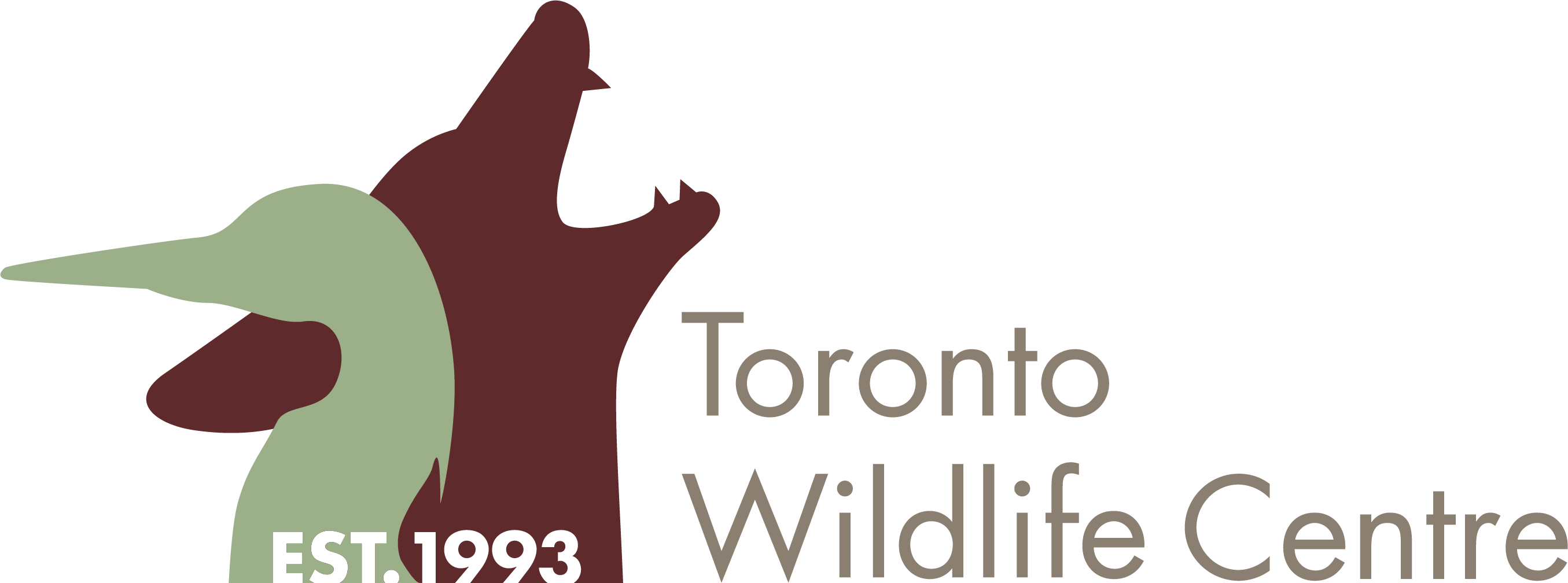Ducks choose their nesting site
Mallard ducks are good at choosing nesting sites, even if sometimes these sites are hard for us to understand. Mallards like sheltered spaces with a lot of vegetation, where the female can stay safe and camouflaged while she incubates her eggs. Well-planted front or backyards look like great nesting spots to mallard ducks. If there are no barriers more than a foot high to prevent the baby ducks from leaving, it’s probably a normal situation.
Sometimes ducks don’t think ahead
Sometimes ducks don’t think ahead, and nest in places that their babies won’t be able to fly out or off of. If the nest area has a barrier around it more than a foot high, please contact a wildlife rehabilitator for advice. If the ducklings have already hatched, provide them with a shallow pan of water and consider this an emergency.
Ducks intend to leave with their babies
Once the female mallard starts sitting on the eggs, they will hatch in about 30 days. All of the babies hatch at the same time, and are able to walk within hours of hatching. The mother duck will lead her new family away from the nest area.
Where will the ducks go?
Once the ducklings have hatched, their mother will lead them to the closest water source—there’s usually one closer than you think, so check a satellite map if you aren’t sure! The duck might lead her babies 2–3 kilometers from their nest site to her chosen spot. This can be a dangerous journey for them, but it’s a normal part of their development.
Can I do anything to help?
It’s generally best not to intervene during incubation, and the mother duck is able to take care of her babies once they hatch.
However, there are a few things you can do:
Don’t touch the nest
Mallard ducks are federally protected, so moving the nest is illegal without a permit. Even more importantly, a duck will not recognize her nest if it is moved even a few feet. A relocated nest will be abandoned.
Let people know
Put up signs to alert passersby or tape off a section of the yard to keep the duck safe and calm while she’s waiting for her eggs to hatch.
Don’t feed the ducks
It’s normal for a female mallard not to eat for the entire incubation period – she fattens up beforehand to prepare. Leaving food or water out for the duck will only attract predators like raccoons or opossums, putting the nest in danger. Once the ducklings have hatched, feeding them unnatural food like bread can cause problems with their growing bones and feathers.
Plan ahead to discourage nesting ducks in the future
If you want to prevent ducks from nesting in the yard, think about making changes next year to discourage them from nesting again.
Change the landscape
Planting shrubs, tall grasses, or trees can break up the sightlines and make the yard a less attractive nesting spot for ducks. Scare devices such as eye-spot balloons, coloured flags, or garbage bags tied to sticks can be very effective if you set them up just before nesting season and move them around frequently.
Be a nuisance
Physically getting outside and chasing the duck away while she’s still scouting the territory (but before there are eggs in the nest) can help convince her to find a better spot.
Duckling crossing guard
Human Safety First! Never put yourself or other people in danger to help a family of ducks cross a road. You can help by waving at drivers to alert them to the birds. Ask passersby with pets or children to keep back. Keep a safe distance, and try to gently steer the birds in the direction of the closest pond, stream, river, or lake.
It may seem like a good idea in these situations to try to catch the family and move them to a safe spot, but this risks scaring off the mother and scattering the babies.
Remember that crossing roads is a fact of life for urban wild animals, and one of many skills babies need to learn from their parents.
Orphaned ducklings
Ducklings found alone with no mother should always be considered orphaned. First, look around to make sure the mother isn’t waiting nearby. If you don’t see her, please contact a wildlife rehabilitator immediately.
To learn more about mallard ducks, their nesting behaviour, and their life history, check out allaboutbirds.org.

